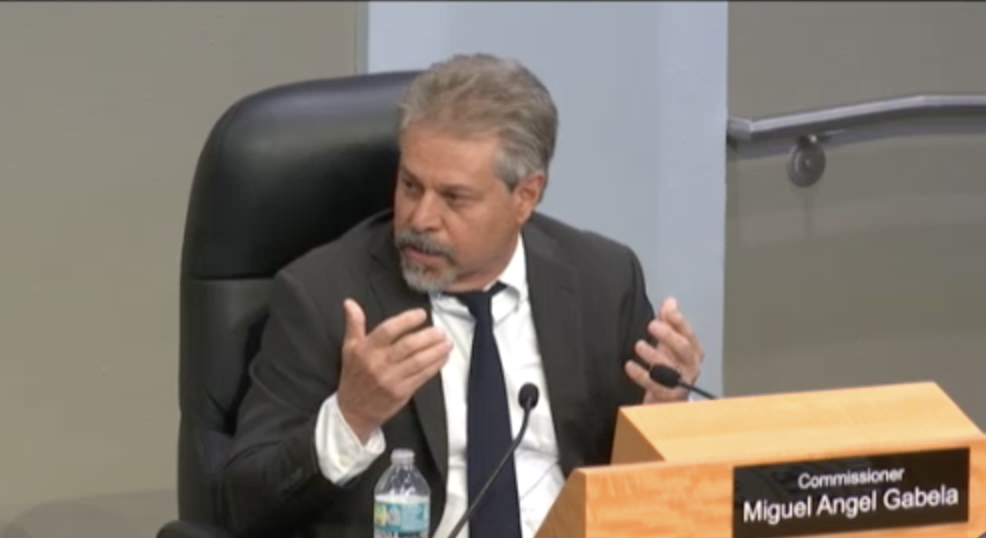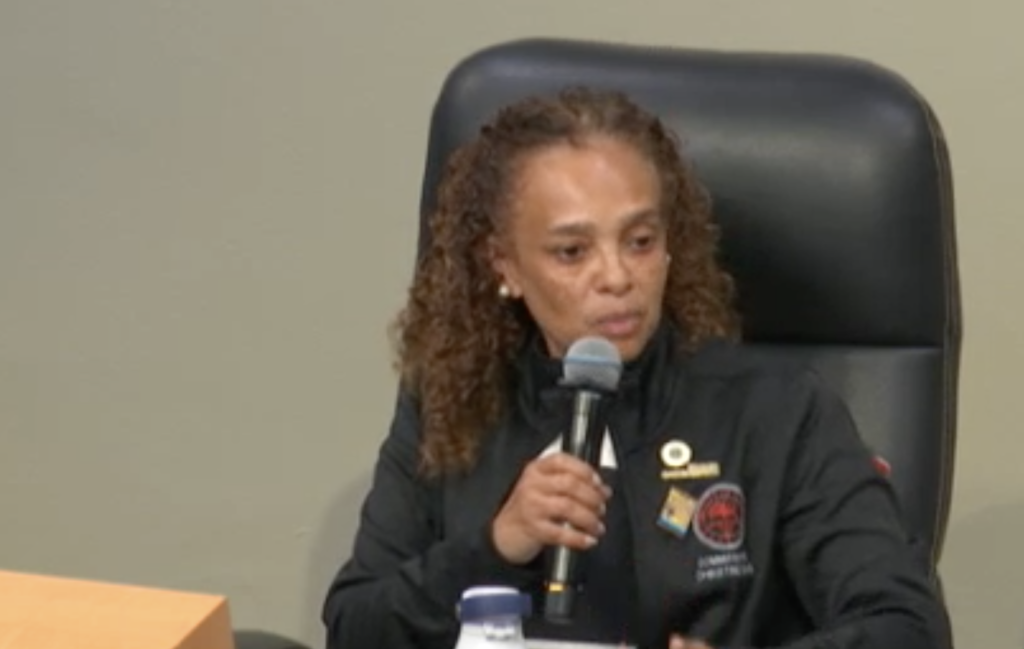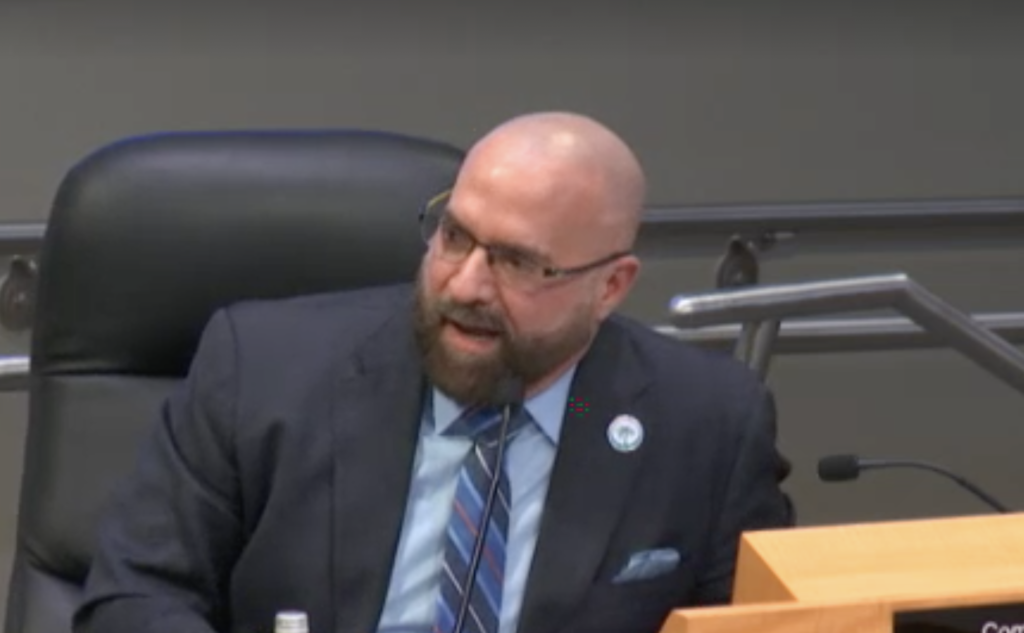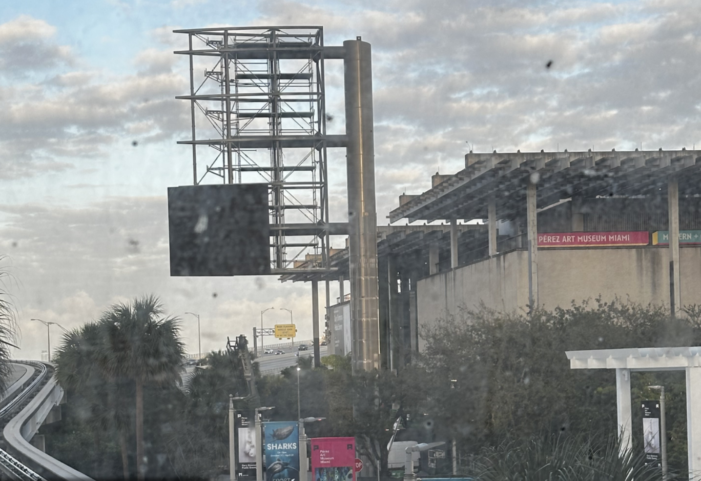But some signs that are already approved may stay
Miami Commissioner Miguel Gabela was very indecisive at Thursday’s city commission meeting.
First he voted to defer the item sponsored by Commissioner Damian Pardo to repeal the ordinance passed last year that allows for massive signs more than double the size of countywide regulations. Then, after a reconsideration of the deferral, he voted against the motion, saying that he didn’t want the city to be liable for millions in lawsuits.
But before the meeting ended, he asked for a reconsideration of the vote, got it, and then switched his vote to approve the repeal, making it 3-2 to swing the other way and pass, with Chairwoman Christine King and Commissioner Joe Carollo voting against it.
He later told Ladra that he had suddenly realized he likes to support commissioners with items they sponsor in their districts.
“I like to respect everybody’s district,” said Gabela, who earlier had voted for a medical marijuana dispensary in District 5 only because Chairwoman King wanted it. “That’s part of his district at the end of the day. Who better to know one’s own district than the commissioner of the district?”
Read related:Digital billboard rewind, moratorium in city of Miami is back for a third try
It sounds a lot like he’s getting ready to propose something he wants others to support because it’s in his district.
“My predecessor put us in this condition we are in,” said Gabela, referring to former Commissioner Alex Diaz de la Portilla, who was arrested in September on unrelated bribery charges in a situation with very similar tones and players. Diaz de la Portilla — who got at least $125,000 from the political action committee sponsored by the billboard company working on the PAMM sign — sponsored the measure last year to allow the huge signs.

“But we’re in this condition, this is where we are,” Gabela said. “We can’t go around issuing permits, people build on our word and then say, ‘Wait a minute, there was a mistake make and you can’t build anymore,'” Gabel said, adding that he had met with the city manager to ask about the city’s exposure to liability. “And let me tell you it’s not good.
“That’s my problem here. We can’t just go issuing permits and then all of a sudden say, ‘Oh wait a minute, now you have to tear it down.”
Gabela said Pardo will have to come back before the second reading in March with some sort of carveout or compromise for the signs that are already approved — particularly the one at PAMM, whose attorney threatened to sue the city for millions, and one of the signs at the Adrienne Arsht Center for the Performing Arts.
King, who worked súper hard to get the item deferred, was visibly upset. She had wanted a deferral so that there would be different treatments for the parks, Virginia Key, downtown and other areas where the signs are approved. “This affects the entire city of Miami , not just your district. This issue should be handled with more care,” King said.
She agreed with Carollo, who said Bayfront and Maurice Ferre parks are regional, not neighborhood parks.
Read related: New petition drive aims to oust Miami’s Joe Carollo from Bayfront Park Trust
“Miami is a tourist city. We get our funds, our majority revenue, from people who come to visit,” the chairwoman said, apparently forgetting that the main source of revenue is ad valorem taxes from property owners, both commercial and residential.
She admonished the representative of another sign company that protested, criticized the Miami Heat sign on the stadium — “It’s a monstrosity of a sign” — praised the Arsht Center for it’s free gospel Sundays and warned that the threat of lawsuits was not just idle talk.


“That’s not rhetoric. They’re not trying to terrorize us,” King said. “They relied on action taken by this body. They’ve taken this step and this step and this step and this step. So they will sue us.
“We don’t have to throw the baby out with the bath water,” she said, adding that the new signature bridge that is being built on I-395 will make the arguments about too much light blaring into Biscayne Boulevard windows a moot point. “That bridge is going to light up like a Christmas tree every single day.”
Pardo said that he believed the city might be able to find a violation of the lease that would put it in a position to be able to walk back the billboard without so much liability. He said the battle had become one of residents against “a boatload of lobbyists” and that most of the people who spoke in favor of the sign were somehow connected to the two facilities or their boards.
“Those are two very different groups and I think we need to side with the residents,” Pardo said, adding that a deferral would likely cause more sign applications to rush in. “Just in the last two days we’ve had two applications go from incomplete to under review,” he said.
That could mean more signs are grandfathered in before the appeal is final.
City commissioners also voted to impose a 240-day moratorium on any new applications for billboards.
A second reading will come on March 14. Political Cortadito will report how many companies or applicants for billboards or signs came in between Thursday’s vote and the next meeting.

